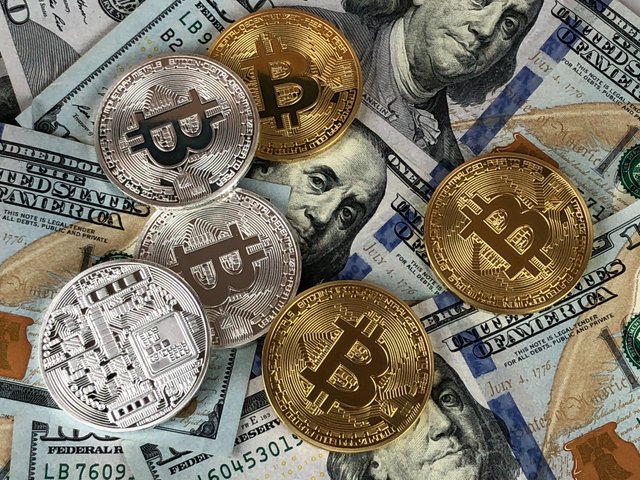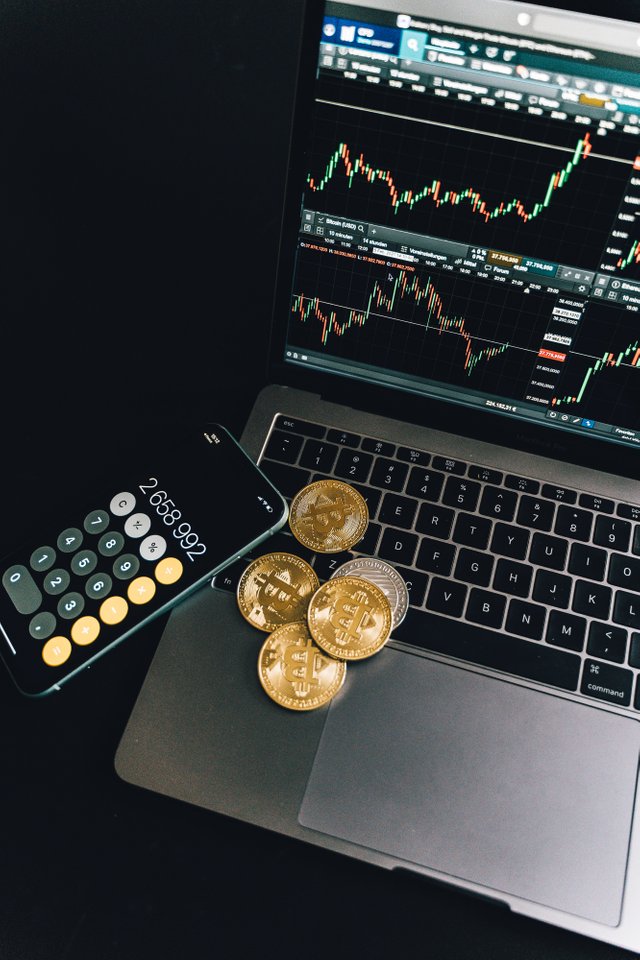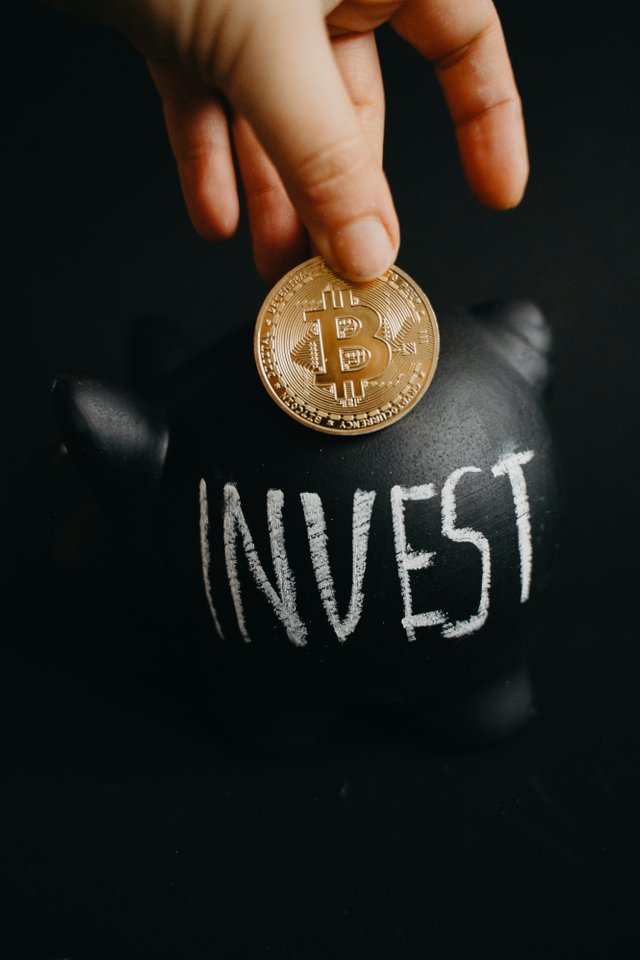The Future of Cryptocurrency.
The crypto market has had a terrible first half of 2022.

Since their all-time highs in late 2021, the prices of bitcoin and ethereum have fallen by more than 50%. Despite some minor gains in recent weeks, the cryptocurrency market as a whole is mainly stagnant. Although no one can be certain, several experts believe that before a sustainable rebound, cryptocurrency values may fall considerably further.
Multiple new all-time high prices for bitcoin were reached in 2021, followed by significant declines and more institutional investment from significant firms. Late last year, Ethereum, the second-largest cryptocurrency, reached its own new record high as well. However, in June, it fell below $900, its lowest point since the beginning of 2021. The Biden administration and U.S. government representatives have shown an increasing interest in new cryptocurrency legislation.
People continue to be interested in cryptocurrency, and it has become a hot topic in popular culture thanks to everyone from seasoned investors like Elon Musk to that Facebook friend from high school.
According to Dave Abner, head of global development at the well-known cryptocurrency exchange Gemini, 2021 was a "breakthrough" in many aspects. The cryptocurrency business is receiving a ton of attention and emphasis.
Top Crypto News This Week-Related
However, the sector is still young and continually changing. That explains in large part why any new high for bitcoin can quickly be followed by precipitous falls.
What will happen in the remaining months of 2022?
Long-term forecasting is challenging, but in the near future, industry professionals will be watching developments like institutional acceptance of cryptocurrency payments and regulation to try and gain a better understanding of the business.
Although it is impossible to make perfect forecasts, we asked five experts what they thought about the future of cryptocurrency:
Expect ongoing discussions on cryptocurrency regulation as lawmakers in Washington, D.C., and throughout the world attempt to develop rules and laws that will make bitcoin safer for investors and less desirable to hackers.

U.S. government representatives have expressed a strong interest in stablecoin regulation, particularly in light of the most recent Terra Luna crash. The stablecoin TerraUSD (UST) depegged from the dollar in May as a result of the collapse in cryptocurrency markets, which also brought about a drop in the associated cryptocurrency Luna. As a result, many investors from Terra and Luna saw their money disappear within a short period of time. Within a few weeks of Terra's failure, the cryptocurrency market crashed once more. As a result of the dire market conditions, several crypto firms announced layoffs and blocked withdrawals in an effort to reduce costs. Since then, some businesses have declared bankruptcy, including Celsius and Three Arrows Capital.
Because of the snowball effect, federal officials have suddenly had greater ammunition to advocate for crypto regulation.
Marcus Sotiriou, a market analyst at digital asset broker GlobalBlock, says: "After the disastrous events that have occurred in the crypto market over the past few weeks, it is evident that harsh regulation could emerge soon." "The failure of DeFi lenders may be the justification policymakers have been seeking to impose harsh regulations on cryptocurrencies."
Even though there is still more to be done, there have been significant regulatory advancements in 2022. The "responsible development" of digital assets, including stablecoins, is the subject of an executive order that President Joe Biden signed in March and directed federal departments to investigate. The first framework resulting from President Biden's executive order on digital assets was just released by the U.S. Treasury Department. It describes how the U.S. should interact with foreign nations over digital assets.
Jerome Powell, the chairman of the Federal Reserve, stated in 2021 that he had "no intention" of outlawing cryptocurrencies in the United States, while Gary Gensler, the chairman of the Securities and Exchange Commission, has frequently discussed the roles played by both his own organization and the Commodity Futures Trading Commission in regulating the sector.
Gensler has stated on numerous occasions that if tougher regulation is not put in place, investors are likely to suffer. Additionally, it stands to reason that the IRS would want to ensure that investors understand how to disclose virtual money on their tax returns. The remarks of Powell and Gensler are in line with a growing consensus among U.S. politicians and the Biden administration that further regulation of cryptocurrencies is required.
In a recent interview, Gensler stated that "more broadly, the public right now would benefit from investor protection around these multiple service providers—the exchanges, the lending platforms, and the broker-dealers." So, the SEC is working in each of those three areas — exchanges, loans, and broker-dealers — and talking to industry members about how to comply or reduce some compliance.
Regulation in the cryptocurrency world faces challenges, as do most things. According to Jeffrey Wang, head of the Americas at the Amber Group, a Canadian-based cryptocurrency finance company, "there are several organizations that may or may not have jurisdiction to monitor anything." And it varies from state to state.
According to Wang, the absence of clear legislation now prevents American businesses and investors from operating, which represents a "major obstacle for cryptocurrencies."

Potential effects of new regulations on investors
Although the idea of cryptocurrency regulation can be contentious, many experts believe it will be beneficial to both investors and the sector as a whole.
Increased regulation may lead to greater stability in the famously unstable cryptocurrency market. As long as it hits the appropriate balance, it may also serve to safeguard long-term investors, stop fraudulent conduct inside the crypto ecosystem, and offer clear guidelines to encourage business innovation in the sector.
Ben Weiss, CEO and creator of CoinFlip, a cryptocurrency purchase platform and network of cryptocurrency ATMs, asserts that "sensible regulation is a win for everyone." People now have more faith in cryptocurrencies, but I believe we need to take our time and do it correctly.
In already unpredictable markets, regulatory news may have an impact on cryptocurrency prices. Due to market volatility, experts advise limiting your cryptocurrency investments to no more than 5% of your whole portfolio and never putting money at risk.
Increasing Institutional Cryptocurrency Use
In 2021, mainstream businesses from several sectors showed interest in cryptocurrencies and blockchain technology, and in some cases, they even made their own investments. For instance, AMC declared last year that it would take Bitcoin as payment. By enabling customers to purchase on their platforms, fintech businesses like PayPal and Square are also placing a bet on cryptocurrencies. Despite the fact that the corporation has billions of dollars' worth of cryptocurrency assets, Tesla accepts Dogecoin payments and is still undecided about accepting bitcoin payments. Experts anticipate an increase in this buy-in.
We've noticed a huge influx of interest, and Abner predicts that trend will continue to fuel the industry's expansion for some time to come.
Larger, international firms may accelerate this adoption even further in the second part of this year, according to some experts. Weiss predicts that organizations will start investing in cryptocurrencies, including Amazon and the major banks. A major shop like Amazon would "provide a lot of legitimacy" and "start a chain reaction of others accepting it."
In fact, Amazon recently shared a job listing for a "digital currency and blockchain product lead," which spurred rumors that the company is moving in that direction.
What does increased adoption by institutions mean for investors?
While most individuals don't currently see the benefit of purchasing with cryptocurrencies, as more merchants begin to accept them, the situation may change. Although it may take some time before buying goods or services with bitcoin will be a wise financial move, increased institutional adoption may lead to more applications for regular consumers and affect the price of cryptocurrencies. Nothing is guaranteed, but if you purchase cryptocurrencies as a long-term store of value, the greater the likelihood that demand and value will rise as they find more "real world" applications.
The upcoming NFTs
Non-fungible tokens, or NFTs, have existed since 2014, but it wasn't until 2021 that this cutting-edge technology became widely accepted.
NFTs, which stand for digital ownership of a variety of unreplicable intangible goods, have caught the interest of prominent people and large corporations like American Express and Gucci. According to data gathered by DappRadar, an app store for decentralized applications, total NFT sales reached $25 billion in 2021 as opposed to $94.9 million the previous year.
However, the question of whether NFTs are merely a fad or a trend is still up for debate. According to data from DappRadar, NFT sales declined below $1 billion in June for the first time in the previous 12 months.
The opinions of experts are still divided; some call NFTs a "bubble," while others argue that the smart contracts used in blockchain technology, which underlie them, are what actually provide genuine value. Artists and producers are asserting that this is the newest method of income in the meantime.
According to Humphrey Yang, the personal financial specialist at HumphreyTalks, "I do think that they're really hot right now, especially the previous four months."
"I think they'll still be around in 10 or 20 years. I'm not sure how often we use them. Communities will continue to hold some importance for people, but NFTs' more extensive uses will be more fascinating.
Recent evidence suggests that the market may finally be slowing down. At the beginning of the year, nearly a million accounts were actively buying or selling NFTs; however, as of recently, only roughly 491,000 accounts were doing so. Because of the dropping value of cryptocurrencies, other macroeconomic factors including inflation, rising interest rates, and Russia's conflict in Ukraine, several experts predict that the NFT industry will continue to be negatively impacted.
According to Chainalysis' study, "NFTs enjoyed tremendous growth in 2021, but this growth hasn't been continuous and has leveled off so far in 2022."
What investors should know about the fall in NFTs
Numerous people purchased NFTs throughout the past year, either as investments or just for enjoyment. Whatever the reason, the recent collapse of the cryptocurrency market has significantly reduced the value of many of those digital assets.
Yang claims that from an investment standpoint, purchasing an NFT is "riskier" than purchasing cryptocurrency because it is "almost like a leveraged gamble on cryptocurrency." People don't really understand the difference and buy them because they are entertaining, he said, adding that it is essentially gambling.
You should probably avoid NFTs, knowing that they are even riskier and more speculative than crypto, especially as the price of bitcoin is generally declining. According to experts, most long-term investors will be better off investing in bitcoin or ethereum, two of the biggest cryptocurrencies, instead of an NFT, with a tiny amount of their portfolio (less than 5%, and never at the expense of achieving other financial goals).
Outlook for DeFi
If you have any cryptocurrency investments, you've probably heard of the phrase "DeFi." It stands for "decentralized finance" and alludes to a digital environment where alternative financial services run on blockchain and cryptocurrency technologies.
DeFi replaces conventional intermediaries like banks and lenders with "smart contracts." In essence, software is replacing the companies we deal with on a daily basis to handle our accounts. As a result, there is no central authority to which DeFi entities must answer.
DeFi, however, is still in its relative infancy, much like the early days of the internet, when there were few websites, few online services, and primitive chat rooms, giving the impression of the "Wild West." With that in mind, analysts predict that there may be some hiccups along the way with its development, but eventually there may be a Google or Amazon of the DeFi space.
According to Dr. Merav Ozair, a professor of fintech at Rutgers Business School and a blockchain expert, further improvement is the next critical step for DeFi. The next stage, he argues, is to learn how to write good code and turn everything up a notch.
The meaning of increased DeFi use for investors
DeFi is the place to go if you want complete and utter control over your possessions.
However, there may be a trade-off because there are fewer legal barriers to protect your assets. In many ways, DeFi resembles the "wild west" of banking and investment, where there may be no way to reclaim your money if you lose them to hackers or through other means.
DeFi is still in its infancy, so it's wise to balance the dangers and potential rewards when contrasting it with other financial solutions. Since the DeFi market is unregulated, you'll have to take more financial risks, but you'll also have more freedom and control. To get started, you'll need to have a basic knowledge of cryptography and purchase some cryptocurrency.
According to experts, it's ideal to only have 5% of your whole portfolio invested in cryptocurrencies, and only after you've amassed an emergency fund and paid off any high-interest debt.
Outlook for Bitcoin's Future
Since it is the most valuable cryptocurrency by market cap and the rest of the market tends to mimic its tendencies, Bitcoin is an excellent predictor of the crypto market as a whole.
After a tumultuous ride in 2021, the price of bitcoin reached a new record high in November when it surpassed $68,000. But in 2022, it all came tumbling down.
In the midst of continued macroeconomic uncertainty brought on by rising inflation, a weak stock market, rising interest rates, and worries about a recession, Bitcoin and the larger crypto market have been declining this year. Since last November, Bitcoin has lost more than two-thirds of its value and recently fell as low as $17,500. On whether bitcoin has bottomed out yet, experts are divided. Some claim it has already happened, while others predict a drop to $10,000 for bitcoin in 2022.
Because of this volatility, experts advise keeping your initial cryptocurrency investments to less than 5% of your overall portfolio.
But how far can bitcoin advance over the long run? Despite bitcoin's rough start to the year, analysts continue to predict that it will reach $100,000; it is more a question of when than if. According to Kiana Danial, author of "Cryptocurrency Investing for Dummies," Bitcoin's background may offer some hints as to what to anticipate moving forward.
Since 2011, Danial claims there have been numerous significant price surges followed by declines in Bitcoin. "I anticipate short-term volatility and long-term growth from Bitcoin."

Outlook for Ethereum's Future
The second-largest cryptocurrency and most well-known alternative coin is called Ethereum. It can be used as a reliable indicator of the cryptocurrency market, much like bitcoin. Its value has increased dramatically over the past six years, rising from $0.311 at its introduction in 2015 to nearly $4,800 at its peak in late 2017.
Despite being some distance from its all-time high, the price of ethereum has the potential to increase significantly throughout the rest of 2022.
According to experts, the outcome of Ethereum's significant upgrade, scheduled for September 19, could affect that figure. Insiders say Ethereum is updating its technology to a less energy-intensive version known as "The Merge." The network will allegedly become quicker, more affordable, and more effective as a result of the update.
Experts predict that ether might once again break $4,000 in 2022 and may even reach $12,000 if ethereum keeps its promises with the integration. Investors are keeping a close eye on every development leading up to the merger and, in some circumstances, profiting from the present market slump by purchasing the dip in front of it. According to analysts, only time will tell if ethereum's price will rise or drop back to earlier lows.
This year is going to be crucial for Ethereum, almost a make-or-break year.
Henri Arslanian, global leader for cryptocurrency at PwC, a professional services company, remarked.
What the price volatility of bitcoin and ethereum means for investors
The volatility of bitcoin and ethereum is another justification for investors to play a steady long game. Don't be concerned with short-term volatility if you're buying with the intention of long-term growth. The best course of action is to "set it and forget it" and stop thinking about your cryptocurrency investment. Every time there is a price movement, whether it is up or down, experts continue to warn us that emotional reactions can lead investors to act hastily and make choices that cause them to lose money on their investment.
Cryptocurrency's Future
The reality is that cryptocurrency is still a new and speculative investment with little historical data on which to base predictions. We can guess on what value bitcoin may have for investors in the coming months and years (and many will). No of what a particular expert believes or claims, nobody truly knows. For long-term wealth creation, it is crucial to only invest what you are willing to lose and to stay with more traditional investments.
Would you be alright if you awoke one morning to learn that developed countries had outlawed cryptocurrency and that it was now worthless? NextAdvisor was informed by Frederick Stanield, a CFP with Lifewater Wealth Management in Atlanta, Georgia.
Keep your investments modest, and never prioritize cryptocurrencies over other financial objectives like retirement savings and debt repayment with high interest rates.